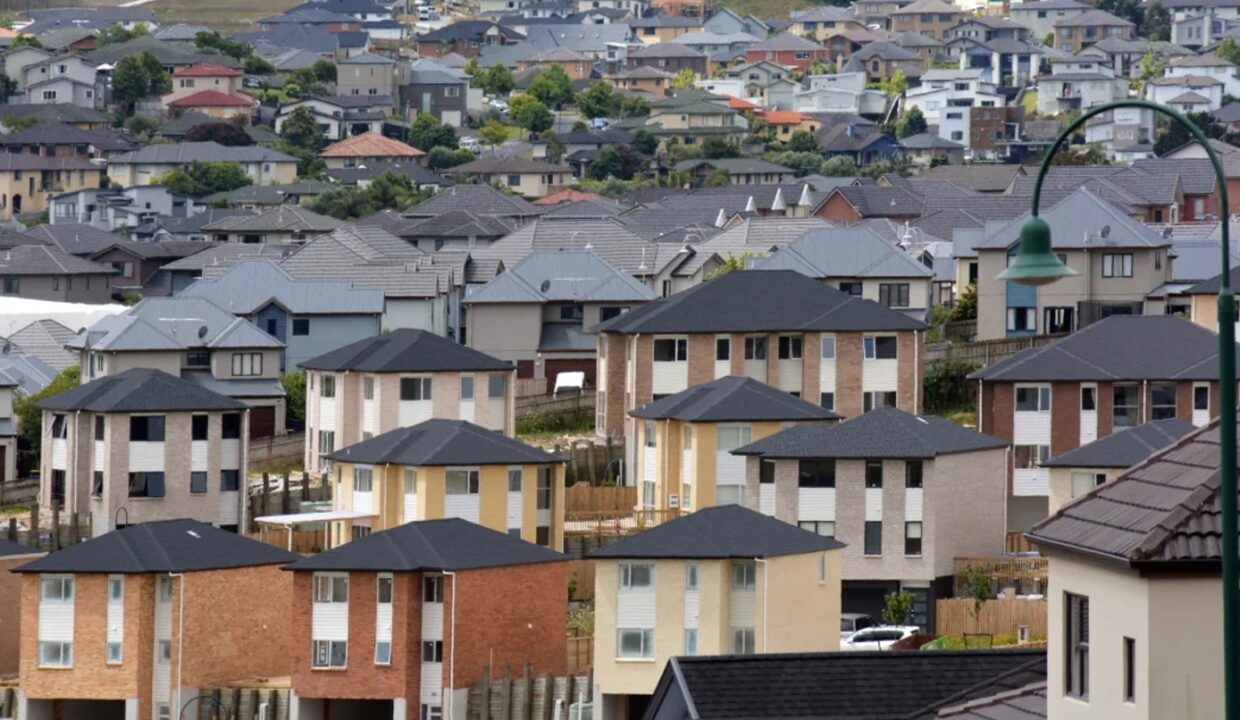
뉴질랜드 부동산 시장, 국민당 정부 정책 변화로 활기 찾을까
Will the New Zealand Housing Market Find Vigor with Government Policy Changes under the National Party?
The New Zealand housing market experienced a significant rise in prices since early 2020, when interest rates hit record lows, reaching a peak at the end of 2021. However, the market has been in a slump since 2023 due to rising interest rates and other factors. With the National Party regaining power in the October 2023 general election after five years, policy changes aimed at economic revitalization are anticipated.
Q1 2024 Trends: Slight Increase in Property Prices
According to the latest QV house price index, property values in February 2024 saw their first slight year-on-year increase since August 2022. The average house price stood at NZD 925,812, marking a 0.6% rise compared to the same period last year. In regions like Auckland, the number of new listings increased, resulting in a growth rate of -0.1%, while regions like Tauranga and Marlborough saw growth rates of 3.1% compared to the previous quarter.
National Party Government Attempts Property Policy Changes
The National Party plans to reintroduce real estate-friendly policies that were previously abolished by the Labour government. This includes reducing the bright-line test from 10 years to 2 years and reintroducing the interest deductibility regime for residential property income. These changes are expected to boost housing investment demand. Additionally, the government plans to simplify the approval process for foreign investors to invest in build-to-rent (BTR) development projects.
Construction Sector Status
The number of new housing permits issued in New Zealand in 2023 reached approximately 37,000, the lowest in five years. One of the country’s largest construction firms, Fletcher Building, experienced significant net losses, leading to the CEO’s resignation. Trends in New Zealand housing indicate that townhouses and unit-style housing have outpaced standalone homes.
Outlook and Implications
Most major institutions and market experts anticipate a 5–10% increase in property prices in 2024. Nonetheless, high mortgage rates and debt-to-income ratio limits could potentially slow the pace of the housing recovery. However, restoring the interest deductibility regime and amending foreign investment laws for rental housing are expected to have a positive impact on the real estate market and the construction sector. The government plans to push for building code revisions to improve the availability of construction products and reduce costs.

뉴질랜드 부동산 시장, 국민당 정부 정책 변화로 활기 찾을까
뉴질랜드 부동산 시장은 2020년 초 금리가 사상 최저치로 떨어진 이후 가격이 급등하며 2021년 말에 정점을 찍었다. 이후 금리 상승 등의 이유로 2023년까지 부동산 시장은 침체기를 겪었다. 그러나 2023년 10월 총선에서 5년 만에 국민당이 정권을 탈환하면서 경제 재건을 위한 정책 변화가 기대되고 있다.
2024년 1분기 동향: 부동산 가격 소폭 상승
최신 QV 주택 가격 지수에 따르면 2024년 2월 부동산 가치가 2022년 8월 이후 처음으로 연평균 소폭 상승했다. 주택 평균 가격은 92만 5812 뉴질랜드 달러로, 작년 동기 대비 0.6% 상승한 수치다. 오클랜드와 같은 지역에서 신규 매물 수가 증가하여 성장률이 -0.1%를 보였으며, 타우랑가와 말보로 같은 지역에서는 지난 분기 대비 3.1%의 성장률을 기록했다.
국민당 정부, 부동산 정책 변화 시도
국민당은 기존 노동당에서 폐지했던 부동산 친화적인 정책을 다시 도입할 예정이다. 브라이트 라인 테스트를 10년에서 2년으로 단축하고, 주거용 부동산 소득에 대한 이자 공제 제도를 재도입한다. 이는 주택 투자 수요를 늘릴 것으로 전망된다. 또한 외국인 투자자가 임대형 주택(BTR) 개발 사업에 투자할 수 있도록 동의 절차를 간소화할 예정이다.
건설 경기 상황
2023년 뉴질랜드에서 발급된 신규 주택 건축 허가 수는 약 3만 7000건으로 5년 만에 최저치를 기록했다. 최대 건설사 중 하나인 플레처 빌딩의 CEO가 대규모 순손실을 기록하며 사임했다. 뉴질랜드 주택 트렌드는 타운하우스 및 유닛 형태의 연립 주택이 단독 주택을 능가하는 양상을 보였다.
향후 전망 및 시사점
대부분의 주요 기관과 시장 전문가들은 2024년에 부동산 가격이 약 5~10%까지 상승할 것으로 전망하고 있다. 높은 모기지 금리와 부채-소득 비율 상한선 전망으로 부동산 회복이 다소 느릴 가능성도 존재한다. 그러나 세금 이자 공제 제도 복원과 임대 주택에 대한 외국인 투자법 개정은 부동산 시장과 건설 경기에도 긍정적인 영향을 미칠 것으로 예상된다. 정부는 건축법 개정을 통해 건축 제품의 가용성을 높이고 비용을 낮추는 방안을 추진할 계획이다.
